Ask an Attorney a Question for FREE!
Liability Insurance and Coverage
Page II
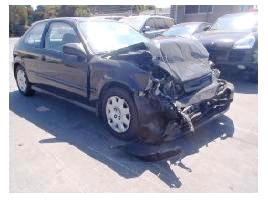
Your insurance company under Liability Insurance or Coverage will not pay for anything that is not reasonable and necessary (actually they will never pay anything that is not reasonable and necessary).
This concept has been the cause of litigation for many years. Now, how do you know which costs are reasonable and necessary? It depends on the circumstances, and the third party will have to justify that the expenses they incurred fit this definition.
For example, say you hit someone in a Ford Taurus, and they go out and rent a luxury car. Your insurance company should (and probably will) object.
It is not reasonable or necessary to rent a luxury car when you only hit a Ford Taurus.
This can be argued or changed. For example, if the luxury car was the only car available in the entire town for rent (believe me this has happened), then it could be both reasonable and necessary to pay for that expense.
Your insurance carrier will not be as keen to pay for bodily injury damages (Special and/or General Damages). The reason for this is simple.
The Insurance carrier has a duty to obtain a release of all claims that can be made against you and the auto policy.
Essentially, this release is a contract between the claimant and the insurance company in which the insurance company provides payment of medical bills and pain and suffering in exchange for the agreement of the claimant to discharge forever any kind of lawsuit against you, the insured.
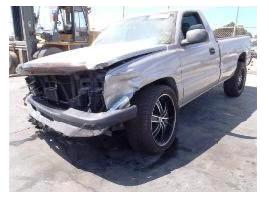
This would provide liability insurance coverage that you paid for. This contract is enforceable in a court of law and would bar any claims against you, forever.
Since this is the case, the insurance company’s bargaining power is on these payments.
They will not pay unless they know there will be no litigation coming against you or them (the exception is in Montana, where insurance companies owe advance payments).
This system is good for the insured, but oftentimes it puts the claimant in a weak position. If the claimant does not have medical coverage, they will have to pay out of their own pocket for their injuries and expenses.
They will be reimbursed once they settle. Their bills will go unpaid until this happens. This is completely legal and your insurance company uses it as leverage to get the release of any and all claims.
But what happens when the insurance company and the claimant cannot agree on a number?
The claimant can sue you directly. If this is the case, then the insurance company is obligated under Liability Insurance to provide you with an attorney to protect your interest (note: they select the attorney).
If they lose in court, then the insurance company will pay the judgment award against you (up to the limit agreed in the declaration page under Liability Insurance or Coverage).
There are limitations to this coverage. The limitations are spelled out on the policy (in different sections).
Liability coverage has a limit (the most the insurance company will pay on your behalf).
These limits are put forward on the Declarations page (usually the first page of your policy where your car, name, coverages, and limits are written).
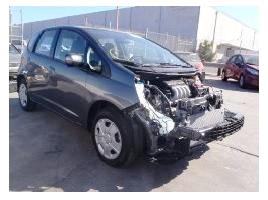
For more information regarding the Declaration page and limits of coverage please go to Read the Policy.
The next topic under Liability Insurance or Coverage is the concept of Actual Cash Value vs. Replacement Cost.
Your insurance carrier will agree to pay for Actual Cash Value (ACV) for the damages caused.
This sounds pretty good, but if you look at the definitions (insurance policies have a definition page), you will realize that they will only provide coverage for what the item is worth that day (the day of the accident).
Again, that sounds good until they explain that they will depreciate everything, and how they depreciate these items.
Therefore, if you damage a power tool that is 5 years old, they will depreciate that tool by five years.
They use depreciation tables, and a power tool is virtually worthless in 5 years. This means that they will only pay a few cents on the dollar for that tool.
If you are the person that caused the damage, you can end up in court defending why your insurance company only pays Actual Cash Value.
This is the reason why when the vehicle is a total loss, insurance companies will pay what the car is worth and not what is owed in a car loan.
Replacement Cost is what we would like to have in all our policies (homeowner’s and renter’s policies pay for replacement cost).
Replacement Cost is the actual cost to replace your property.
Replacement Cost would be the “real” insurance. In the example above, if they carried replacement cost, they would pay the cost of going and getting the same power tool.
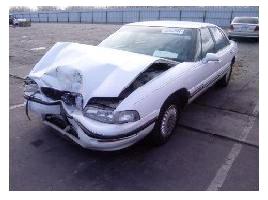
There are some situations were you need to keep Liability Insurance or Coverage in mind.
If you are driving and you cause an accident, the passengers of your vehicle could make a claim against you (potentially sue you) for their damages (property damage, injuries, medical bills, pain and suffering if any).
Liability Insurance or Coverage will protect you against your own passengers!
There are no limitations on this. Your husband, wife, children, or friends can be entitled to this protection and a settlement.
Insurance companies will often offer a substantially lower amount for this type of situation because your passengers or family members are not aware that they can sue you personally.
Many times, they will only pay for medical bills under Liability Insurance or Coverage and decline to make any payments under the general damages section.
Remember, they are entitled to a settlement for pain and suffering and your insurance company should get a release from them in exchange of some compensation.
The second situation in which you can use Liability Insurance or Coverage is when the policyholder (the person paying the premium) becomes the actual third party or claimant.
If you pay premium on your car, and you are a passenger of your own car (someone else is driving), you could have a claim against the driver of your own car and also your own insurance company will have to settle with you.
You will see that the definition of an insured under most insurance policies is:
a. the policyholder or
b. the permissive driver of your car
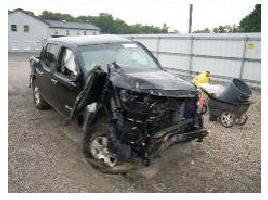
If the driver of the vehicle satisfies the second definition (definition b), then you can have a third party claim against your own policy!
The last thing to note is that this coverage has no deductible. The insurance company will pay 100% of damages up to the policy limit.
What is a deductible?
A deductible is the amount of money you would have to pay out of your own pocket for damages.
Say your damages are $1,000, and your deductible is $200. Your insurance company will only pay $800, that is the total amount of damages minus your deductible ($1000 - $200 = $800).
Read Page 1 of Liability Coverage.
To read more on deductibles please refer to (how to read a policy).
Click below for an explanation insurance coverages and terms:
Automobile Liability Insurance or Liability Page 1
Automobile Liability Insurance or Liability Page 2
Automobile Medical Payments or Personal Injury Protection (PIP) Page 1
Automobile Medical Payments or Personal Injury Protection (PIP) Page 2
Collision Coverage (Protection Against Loss to the Auto) Page 1
Collision Coverage (Protection Against Loss to the Auto) Page 2
Comprehensive Coverage (Protection Against Loss to the Auto) Page 1
Comprehensive Coverage (Protection Against Loss to the Auto) Page 2
Under or Uninsured Motorist Property Damage (UMPD) Page 1
Under or Uninsured Motorist Property Damage (UMPD) Page 2
Under or Uninsured Motorist Bodily Injury (UMBI)
Rental Reimbursement or Loss of Use Coverage Page 1
Rental Reimbursement or Loss of Use Coverage Page 2
Restoration Coverage
Towing and/or Road Assistance Coverage (Emergency Packages)
Insurance Clauses and Terms
Overview
Actual Cash Value or ACV
Additional Insurance Clause
Cancellation of Coverage Clause
Choice of Law Clause
Forum Selection Clause
Duty to Cooperate Clause
Duty to Report Losses Clause
Financial Responsibility Clause
Insurable Interest Concept
Interpretation of the Policy Concept
Mandatory Arbitration Clause
Mitigation of Damages Clause
Non Duplication of Benefits Clause
Proof of Loss Clause
Promissory Estoppel Concept
Reservation of Rights Concept
Reasonable and Necessary Clause
Right of Appraisal Clause
Right of Settlement Clause
Rights of Counsel Concept
Subrogation of Rights Clause Part I
Subrogation of Rights Clause Part II
Statute of Limitations Concept
Replacement Cost Value
Restoration Coverage
Transfer of Benefits Clause
|
For a Free Review of Your Case
Please Call (866) 878-2432 |


